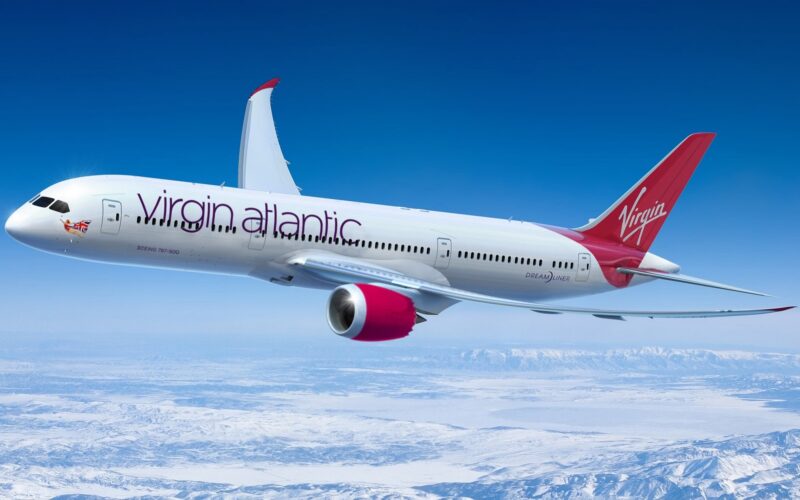Virgin Atlantic will operate the world’s first net zero transatlantic next year after winning a competition to receive funding from the UK government that was launched in May this year.
The project will see the airline operate a Boeing 787 between London Heathrow and New York’s JFK airport using 100 per cent sustainable aviation fuel made primarily from waste oils and fats.
The use of SAF on the flight, combined with carbon removal through biochar credits – a material which traps and stores carbon taken from the atmosphere – will make the flight net zero, said a statement from the UK government.
Virgin was selected as the winner of up to £1 million in support from the government and will undertake the project in partnership with Boeing, Rolls-Royce, Imperial College London, University of Sheffield, Rocky Mountain Institute and ICF.
“For decades, flying from London to New York has symbolized aviation’s ability to connect people and drive international progress. It’s now going to be at the forefront of cutting carbon emissions from flying,” said transport secretary Mark Harper.
“Not only will this flight pave the way for future generations, but it will demonstrate just how much we can achieve when we work together on a shared goal – bringing together some of the best businesses and academics in the world and led by a British airline.”
Shai Weiss, Virgin Atlantic CEO, added: “This challenge recognizes the critical role that SAF has to play in decarbonising aviation and the urgent collective action needed to scale production and use of SAF globally.
“The research and results will be a huge step in fast-tracking SAF use across the aviation industry and supporting the investment, collaboration and urgency needed to produce SAF at scale. Our collective ambition of net zero by 2050 depends on it.”
The transatlantic flight will help project members gather the data needed to support ongoing work to test and certify higher blends of SAF “while exploring how operational efficiency improvements, flight optimisation and carbon removals can contribute to achieving net-zero flights”, said a statement.
The UK government published a Jet Zero strategy in July this year and will introduce a SAF mandate requiring at least ten per cent of jet fuel to be made from sustainable sources by 2030.


